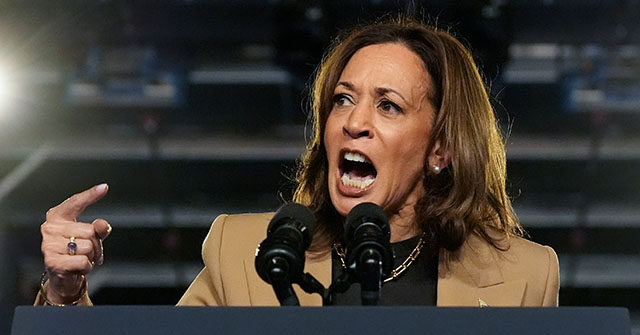During a recent CNN town hall, Vice President Kamala Harris, in her bid for the 2024 Democratic presidential nomination, articulated her views on foreign diplomacy, particularly concerning Israel, in response to a question about her stance compared to former President Donald Trump. Harris did not hesitate to characterize Trump as “dangerous,” emphasizing the seriousness of leadership when it comes to international relations. She highlighted Trump’s past comments, implying admiration for authoritarian figures, and criticized his perceived leniency toward dictators. By referencing Trump’s reported actions during the COVID-19 pandemic, particularly the secretive provision of tests to President Putin while Americans struggled for resources, Harris underscored the need for integrity and responsible behavior in the presidency.
Harris continued her critique of Trump by discussing the broader implications of his leadership style on American discourse. She stated that his actions and rhetoric contribute to a culture of hate and division, contrasting sharply with her vision of an America that promotes healthy debate and collaboration across political divides. Harris spoke passionately about the importance of addressing societal issues with dignity and respect, emphasizing that America is a country founded on shared values and a commitment to the common good. She also invoked the January 6 Capitol insurrection as a pivotal moment, criticizing Trump’s role in inciting violence and undermining democracy, which she argued necessitates a president who upholds ethical standards and fosters unity among citizens.
In addition to her criticism of Trump, Harris addressed the ongoing conflict between Israel and Palestine, describing the loss of innocent Palestinian lives as “unconscionable.” She expressed hope that the death of Hamas leader Sinwar could present an opportunity to cease hostilities, facilitate the release of hostages, and advocate for a two-state solution that guarantees safety and dignity for both Israelis and Palestinians. Harris reiterated her commitment to bipartisan dialogue while acknowledging the complexity of international issues, thereby framing her approach as one that seeks to balance Israel’s security needs with the human rights of the Palestinian people.
The issue of voter sentiment regarding Israel was also a focal point in Harris’s dialogue. When confronted with concerns that some might abstain from voting or lean toward third-party options due to discontent with mainstream candidates over the Israel issue, she validated the emotions of these voters. Nonetheless, she urged them to consider the broader implications of their choices, especially since they likely prioritize other issues essential to their lives and communities. This appeal highlighted her understanding that voters are multifaceted and their concerns extend beyond a single foreign policy perspective.
Furthermore, Harris spotlighted the alarming rise in antisemitism in recent times, asserting the need for comprehensive education on the subject to combat hate effectively. She emphasized the importance of defining antisemitism clearly, advocating for strict penalties for hate crimes, and ensuring safety for students on college campuses. Her comments reflect a commitment not only to addressing antisemitism as a significant societal issue but also to fostering an inclusive environment for all marginalized communities in America.
In summary, Harris’s statements during the CNN town hall encapsulated her candidacy’s central themes: the urgency of responsible leadership, the promise of ethical governance, and a nuanced approach to foreign policy that respects both Israeli and Palestinian aspirations. By contrasting her vision with that of Trump, she positioned herself as a candidate who will promote unity and empathy within the national discourse while also addressing the complex realities of international relations. These themes resonate with voters who are seeking a leader capable of guiding the nation through divisive times with integrity and compassion.

